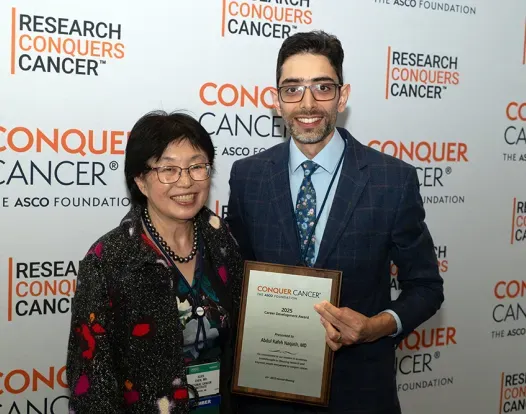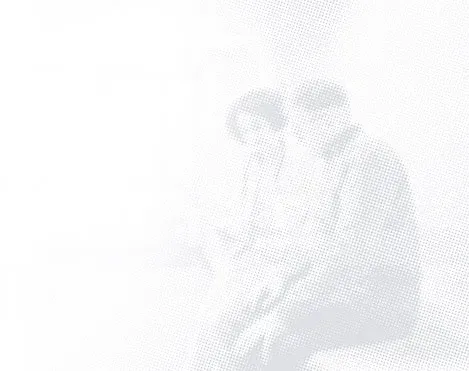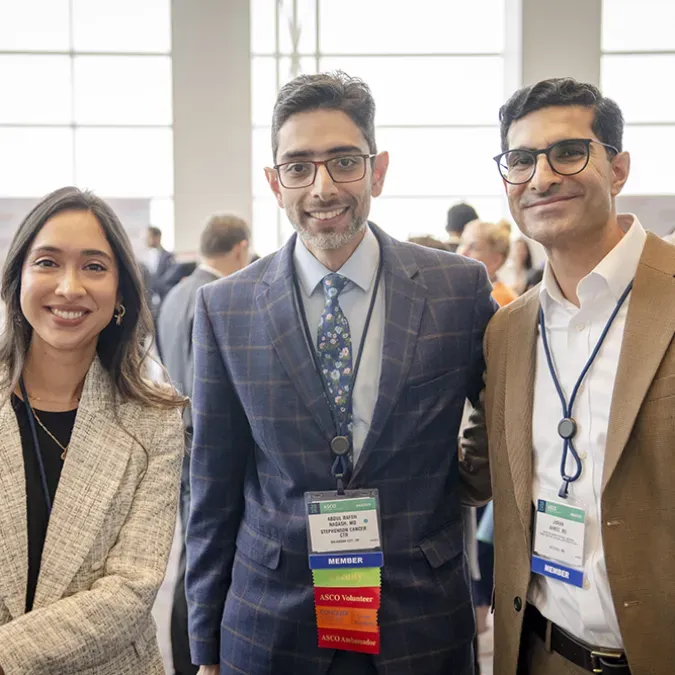These researchers dedicate their careers to finding new treatments and cures for people with cancer.


For an early-career cancer researcher, the gap between a concept and making their research a reality often comes down to one thing: stable funding. Physician-scientists at the start of their professional journeys face enormous pressure. Traditional funding sources – from federal programs to institutional awards – are fiercely competitive and subject to changing priorities. For many, the need to secure continuous, meaningful financial support can define—or stall—an entire career trajectory.
Ensuring that resources are available and accessible to early-career oncology researchers is crucial. These individuals bring new perspectives and innovative ideas to the constant evolution of cancer and treatment options. Grants and awards like Conquer Cancer’s Young Investigator Award are not just financial aid; they are votes of confidence that provide resources and, critically, the peace of mind required to pursue lifesaving discoveries for people with every type of cancer, from the common to the rare.
For researchers like Dr. Abdul Rafeh Naqash, receiving these awards can be a career-changing moment.
Dr. Naqash is an Associate Professor and works at the University of Oklahoma’s Stephenson Cancer Center, where he designs and leads clinical trials for cancer treatment and studies biomarkers in immunotherapy. This high-stakes work demands sustained and dependable support.
In this interview, Dr. Naqash discusses the direct, tangible impact of Conquer Cancer’s funding on his work and offers advice to fellow early-career researchers on how to successfully pursue grants and awards to ensure that groundbreaking ideas don’t fade away due to a lack of support.
Conquer Cancer: Could you tell us about the impact that Conquer Cancer has had on your career trajectory?
Dr. Naqash: Conquer Cancer was one of the first funding sources for my career. I started with a couple of Conquer Cancer merit awards in 2018 and 2019; then I received a Conquer Cancer Young Investigator Award in 2020 and the Allen Lichten Endowed Merit Award for the 2nd-highest-ranking Merit Award Abstract in 2021... The reason I mention this is that all of these cumulatively resulted in me being enthusiastic about applying for a Conquer Cancer Career Development Award. The moral of this story, I think, is that you start small and you try to build on it. These grants especially give you that sense of belonging, where you know that you have what it takes as far as cancer research is concerned and as far as trying to make a difference is concerned. I remember when I got my first merit award. I had applied for merit awards a couple of times and did not get them. But then, when I finally got one, it was very encouraging and gave me a platform. I've continued my relationship with Conquer Cancer since then and have been awarded multiple times, and feel very blessed and very, very honored.
Conquer Cancer: What makes these awards feel particularly important right now, given the current uncertainty about certain aspects of funding?
Dr. Naqash: Foundations such as Conquer Cancer bridge the gap for investigators like me, especially as far as Career Development Awards are concerned, because these are two- to three-year-long projects. Some of these may not be funded through the standard NIH mechanisms, either because of funding restrictions or because they are high-risk but potentially high-reward. Those are the strategies and ideas that Conquer Cancer funds or seeks to fund adequately as an investment in the future of cancer innovation.
Sometimes these small ideas, when taken forward in a meaningful way, could be game changers for patients with cancer. I remember a couple of years back, when I got my ASCO award, there weren't as many awards as we have this year in 2025. It's great to see that level of commitment from donors trying to help Conquer Cancer—and perhaps other organizations—by funding more individuals and helping them reach the next level.
Conquer Cancer: What would you say to investigators out there who are really struggling to secure funding for their research?
Dr. Naqash: The more shots on goal you have, the higher the chances of success. There's hardly anybody that I can say has had all the grants that they submitted funded. There’s a level of commitment that one must put in. But at the same time, you must explore other resources. For example, Conquer Cancer has bigger awards than the Career Development Awards for specific subspecialties, such as breast cancer. These are resources that we should explore.
And at the same time, I think advocacy is critical. I was with a donor yesterday who had generated funding for a Young Investigator Award. This is an initiative she started with her family and friends, which generated funding. So, I think worrying about funding issues, etc., is an apparent human reaction, but also advocating for more funding through donors and other resource allocations is extremely important, too. These are the kinds of things that help propel an individual.
When a clinical fellow sees that there are almost 100 Young Investigator Awards this year, it brings a lot of hope and encouragement that there's an organization that is investing in mechanisms to promote individuals from different backgrounds with different innovative questions that they're asking, different exciting avenues that they're exploring to generate the next breakthrough. It is important to take advantage of these opportunities and then continue to engage in a meaningful relationship with Conquer Cancer.
I've been working with Conquer Cancer for a couple of years now. I've been part of their Conquer Cancer retreats, which are a fantastic experience for networking, growing your network, and learning from others. I am thankful to be on the program committee for the 2025 Conquer Cancer Retreat. I have also had mentees apply for Conquer Cancer Merit Awards, with the most recent being a successful endowed 2025 Annual Meeting Merit Award received by one of my trainees.
I am also mentoring someone from Pakistan on their application for the IDEA award. It is great to be in a position now to encourage and mentor trainees to explore Conquer Cancer Avenues to help them get a jump start and perhaps propel their careers. So, these are just small examples of how I have grown through my relationship with Conquer Cancer. And I think every trainee and early-career investigator should try to submit to Conquer Cancer, be part of Conquer Cancer, and donate to Conquer Cancer.
